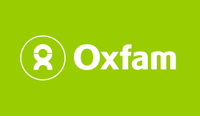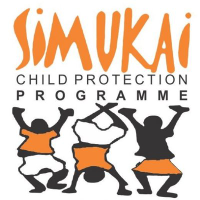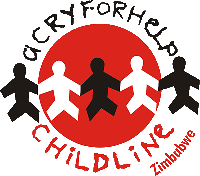TERMS OF REFERENCE (TOR) FOR END OF PROJECT EVALUATION DOCUMENTARY CONSULTANT-SCREEN ONLINE PROJCET
Job Description
BRIEF BACKGROUND ABOUT THE PROJECT
The Screen Online seeks to positively influence children, families and communities to adopt strategies that increase the prevention of child abuse online. The project is aimed at preventing and interrupting online abuse and violence through strengthening children and communities to identify potential online risks, threats and reduce exposure to online violence. In order to ensure that families and caregivers continue to provide online support to children, this project supports district child protection committee members, ensuring that they are aware and capacitated to respond to issues of child online sexual abuse and exploitation. There have been initiatives implemented to strengthen reporting and response systems for OCSEA which include; school-based awareness campaigns, setting up of the video relay system in schools, training and capacitating of helpline agents with sign language skills to respond to reports from children with disabilities, training of social media experts (to infiltrate social media platforms) and strategic PAPFA workshops with key decision makers. Through digital parenting sessions and awareness campaigns, parents and caregivers have been encouraged to come up with digital platform time management/schedules for their children so as to help prevent children spending too much time online as well as come up with more social engagement and interaction options for children that encourage them to interact one on one with other children, and the best initiatives will be awarded to parents. Digital literacy sessions for parents/caregivers have been conducted to empower them with skills on how to enhance online security for their children. Childline has also been engaging children in education activities on online safety. Childline in partnership with HIT is developing games which will be deployed through Google play store that engage children to assist in conveying information on online safety. In addition, the project will hold a series of online safety symposiums for schools. Childline and its partners to adequately allocate resources to ensure children with disabilities are not left behind. DZT, with its expertise in disability inclusion programming, is leading in all activities to do with active participation of children with disabilities and to be supported with adequate resources for them to do so.
As part of the project evaluation and documentation, Childline intends to document best practices, lessons learnt and beneficiary experiences, creating a digital evaluation document that will be shared with stakeholders.
Overall project objective
1. Improve early intervention to prevent victimization of children, and victim support to assist in recovery.
2. Engage families and caregivers in preventing the sexual exploitation and abuse of children, and responding to harmful or otherwise
unwanted experiences online.
Documentary objectives
1. To document relevant activities and events related to online safety, such as awareness campaigns, school presentations, and community
outreach efforts, highlighting the impact of these initiatives on children's online experiences.
2. To document any challenges or gaps in online safety for children in the project sites showcasing the need for improved practices and
strategies.
3. To showcase success stories and best practices in online safety highlighting the positive outcomes of effective safeguarding measures for
children in Masvingo, Harare, Mutare, and Bulawayo.
4. To edit and produce a high-quality documentary that raises awareness about the importance of online safety for children and promotes
dialogue on ways to enhance online safety in children.
Duration and Reporting
The documentation will be executed over a period of 30 days from the time of the signing of the contractual agreement by both parties (Childline and the Consultant). The period of March–April 2024.
Duties and Responsibilities
Expected Deliverables
1. Pre-production Plan:
Detailed outline of the documentary concept, including key themes, messages, and target audience.
Research plan, including interviews with Childline stakeholders, staff, and beneficiaries to gather information on the impact of Childline's work.
Budget and timeline for production.
2. Production Phase:
Footage of the Screen Online Project’s activities, including, outreach programs, and awareness campaigns, training etc.
Interviews with children, families, and communities impacted by the Screen Online Project.
3. Post-production Phase:
Editing of the documentary footage to create a cohesive narrative that highlights the impact of Childline Zimbabwe's work.
Inclusion of testimonials from children and families who have benefited from Childline's services.
Incorporation of statistics and data on the effectiveness of Childline's programs.
Addition of graphics, music, and other visual elements to enhance the storytelling.
Overall, the expected deliverables for the documentary include a compelling and informative documentary that showcases the impact of Childline Zimbabwe's work, raises awareness about child protection issues, and engages stakeholders in supporting Childline's mission.
Qualifications and Experience
Relevant Education and Training:
A degree in Film Production, Media Studies, Journalism, Communications, or a related field. Specialized training in documentary filmmaking, including scriptwriting, camera operation, sound recording, and video editing
Experience in Documentary/Filmmaking:
Proven track record of creating high-quality documentaries on social issues, child protection, or human rights. Experience working on projects with non-profit organizations, NGOs, or government agencies. Knowledge of ethical guidelines and best practices in documentary filmmaking, especially when working with vulnerable populations like children.
Technical Skills:
Proficiency in using video production equipment, editing software, and other tools required for documentary filmmaking. Strong storytelling ability, including the ability to craft compelling narratives and visuals that engage and educate the audience. Understanding of visual and audio techniques to enhance the impact and effectiveness of the documentary.
Project Management Skills:
Ability to manage all aspects of the documentary production process, including planning, budgeting, scheduling, and coordination of resources. Experience working collaboratively with a team of crew members, editors, and other stakeholders to ensure the successful completion of the project. Excellent organizational skills and attention to detail to deliver the documentary on time and within budget.
Interpersonal Skills:
Strong communication and interpersonal skills to effectively collaborate with Childline Zimbabwe staff, beneficiaries, and other key stakeholders. Sensitivity and empathy when working with children and families who have experienced trauma or abuse. Cultural competence and ability to work in diverse communities and settings
Safeguarding and PSEAH
Childline Zimbabwe has in place a Child and Youth Safeguarding Policy, Confidentiality Statement and Protection from Sexual Exploitation, Abuse and Harassment Policy which the Consultant will be expected to sign and will be bound by it thereafter. All information gathered during the evaluation is confidential and is not to be disclosed to any other stakeholder, including media, individuals and/or other firms. Failure to adhere to the provisions of the Confidentiality Statement and the PSEAH policy may result in cancellation of the contract.
Payment schedule
The consultant will be paid the full amount on completion of the assignment. However, delays caused by the consultant will result in penalties. The consultant will be paid for the assignment as stipulated below:
30% on completion and review of inception of pre-production.
30% on submission and review of first draft of the documentary.
40% on submission of final version of the documentary.
How to Apply
Proposals
Interested applicants should provide a proposal covering the following aspects:
1. Expression of interest.
2. Detailed technical proposal clearly demonstrating a thorough understanding of the ToRs.
3. Demonstrated previous experience in documentary production of a similar nature, with at least three references of recent work conducted.
4. Proposed detailed methodology of production.
5. A proposed timeframe detailing activity and a schedule/work plan (including a Gantt chart).
6. Team composition and level of effort of each proposed team member, if applicable.
7. Previous experience/mandates similar in nature including type of production, sector, organization.
8. A financial proposal with a detailed breakdown of costs for the production.
9. Itemized consultancy fees/costs including taxes.
10. Itemized production expenses.
11. Itemized administrative expenses
12. Copy of registration certificate, VAT and other relevant documents.
13. Curriculum Vitae(s) of all proposed team members outlining relevant experience.
14. Names and contact information of three references who can be contacted regarding relevant experience
15. A copy of a previous documentaries of similar work undertaken.
16. A Consulting Firm profile (if applicable).
Bid Format
If you meet these requirements, kindly send an expression of interest (EOI) with a detailed budget to [email protected], [email protected] and [email protected] with your CV and cover letter outlining your qualifications that are more relevant for the assignment, copies of relevant certificates, a sample of similar work done previously should be submitted and a professional reference linked to sample work. Please note that due to the expected volume of applications, only pre-selected candidates will be contacted. The selection process will be on a rolling basis.
Deadline for applications: Applications are to be received by close of business on 26 March 2024.
Similar Listings

Terms Of Reference
Oxfam — Harare

Terms Of Reference
Oxfam — Harare

Baseline Assessment for the project, “Integrated Emergency Response for El Niño Drought Affected Communities in Zimbabwe,
Oxfam — Harare

CALL FOR EXPRESSION OF INTEREST FOR CONSULTANCY SERVICES FOR THE DESIGN AND IMPLEMENTATION OF A CAPACITY DEVELOPMENT PROGRAM FOR SIMUKAI CHILD PROTECTION PROGRAMME
Simukai Child Protection Program — Harare

Location: Harare
Company: Childline Zimbabwe ~~ 0
Expiry Date: 2024-03-26 00:00:00
